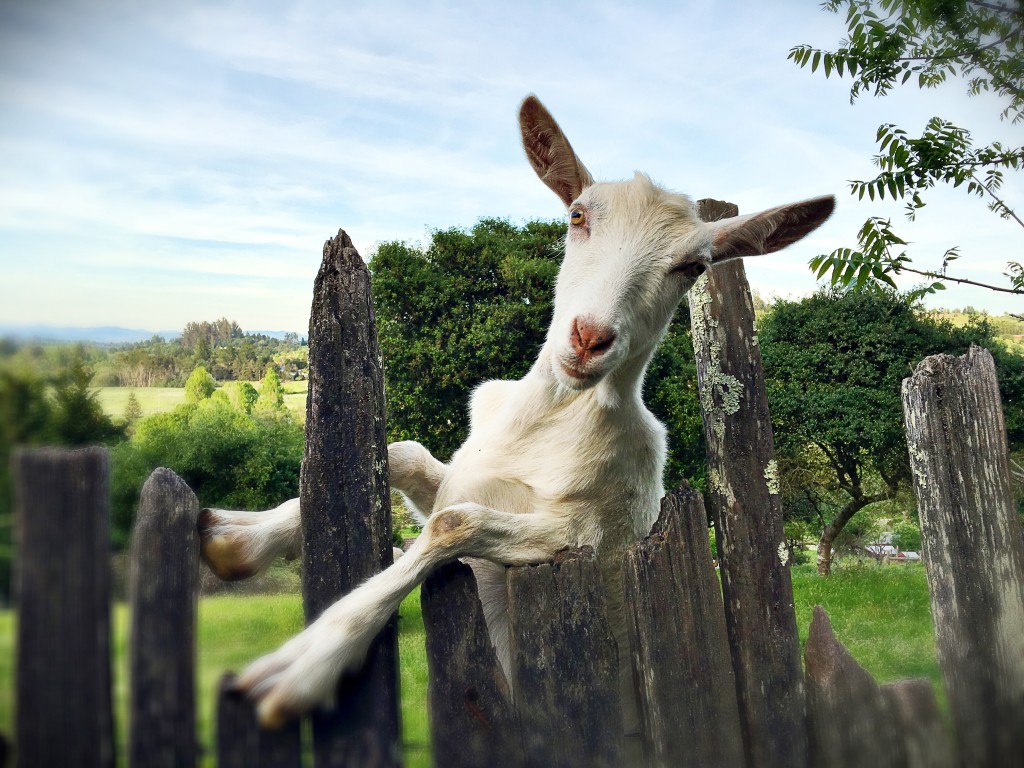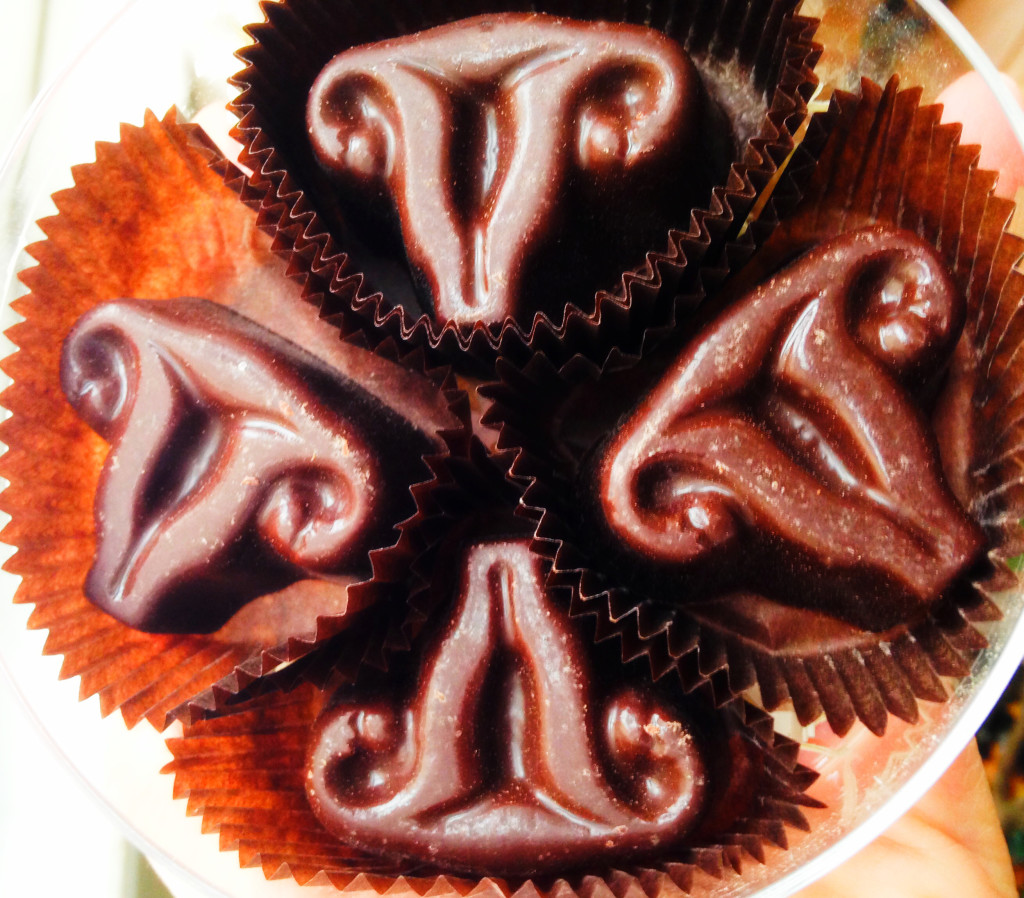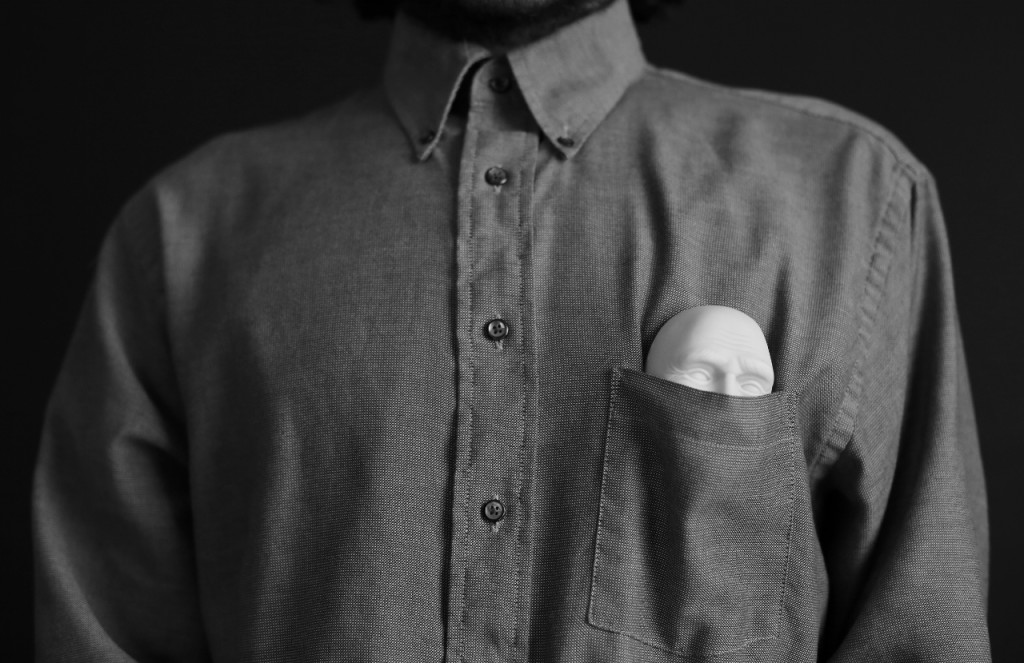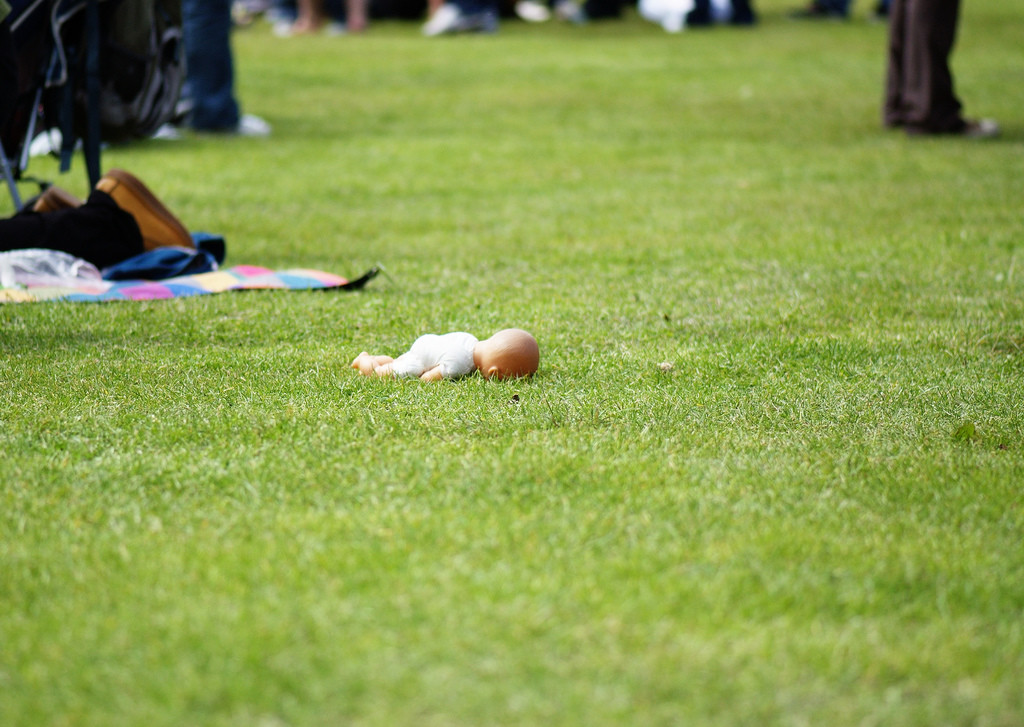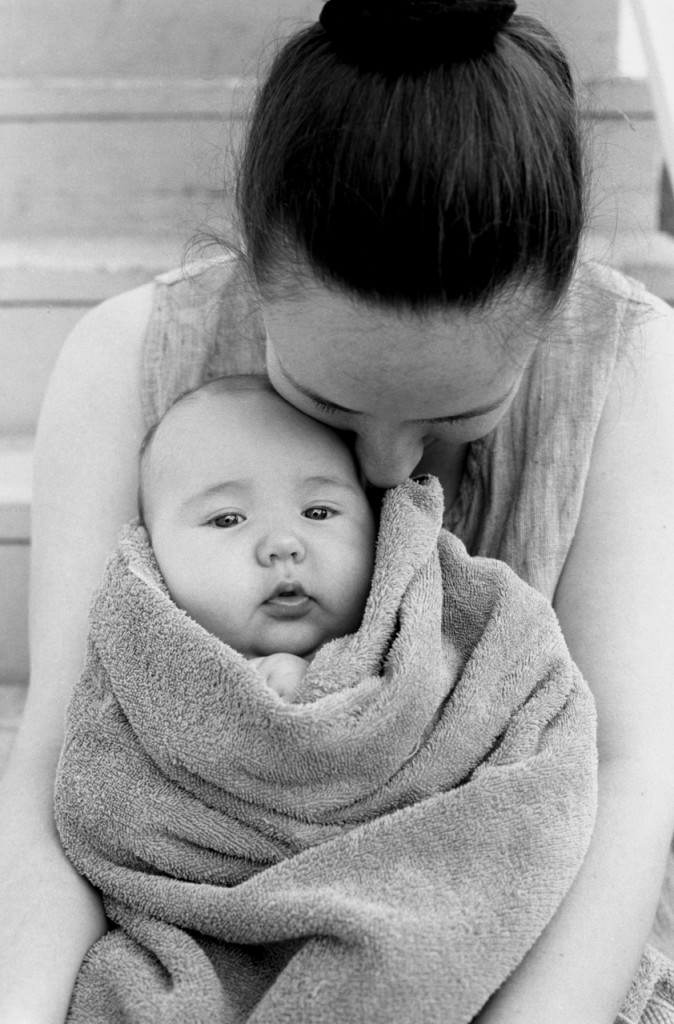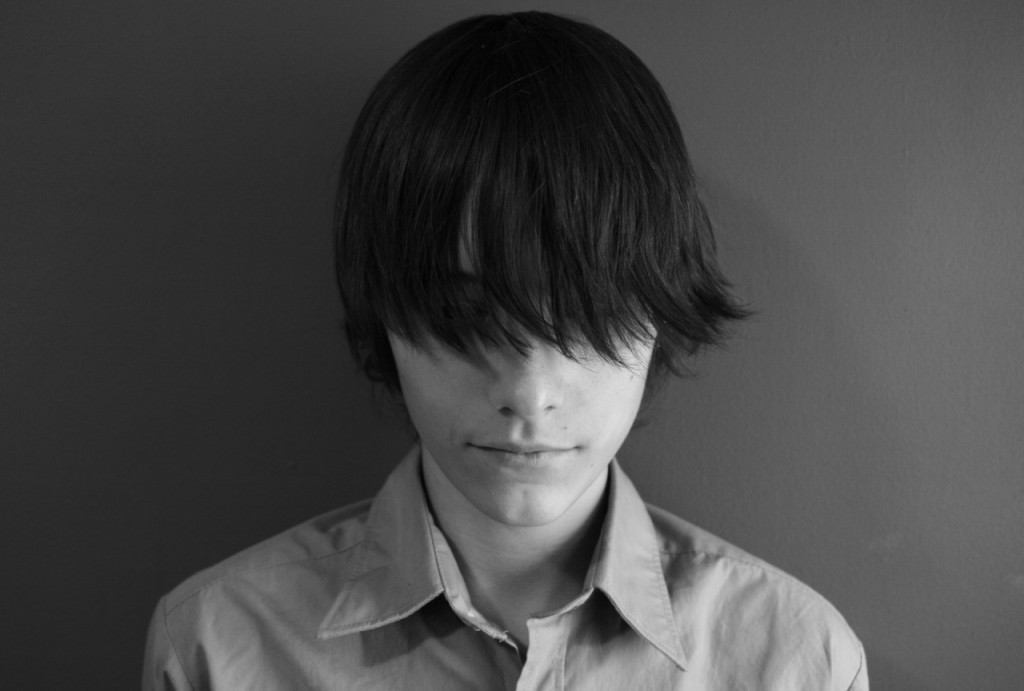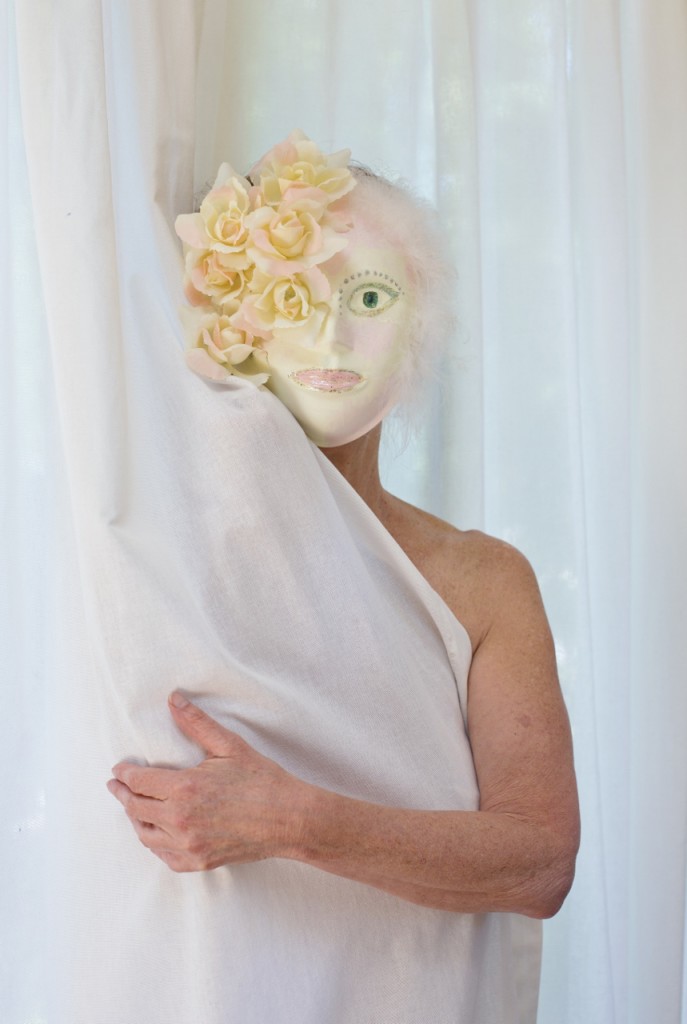
By Jennifer Richardson
Earlier this year when I was trying to work up the courage to quit my job, I went to see the performance artist and musician Peaches at one of those “in conversation” events at a Berlin art gallery. I had moved to Berlin with my husband in 2015 for my job, with the mutual understanding that we would only stay for a year. That deadline was looming, and I had cold feet.
The setting and inspiration for the talk was an exhibition of sixty-five photographs by Cindy Sherman, an artist who’s been tackling the concept of identity in her work since she first started taking her portraits of herself in the 1970s. Sherman usually works alone in her studio and the resulting pictures often portray social and cultural stereotypes, from starlets and pinups to, more recently, aging society ladies and fashionistas. I first came across Sherman through her so-called History Portraits. I was taking an early Italian renaissance art history class at college, and the counterpoint of Sherman’s Madonnas—often equipped with obviously prosthetic, exposed breasts—made me laugh. Sherman doesn’t title any of her works, but they’re often referred to by the numbers curators use in exhibition catalogs and, as in the case of the History Portraits, thematic groupings. In other words, Sherman declines to identify any of her pictures about identity.
I nabbed a seat for the discussion in the second row with a perfect view until, minutes before the program was set to start, a middle-aged woman doused in perfume and wearing a matching white fur jacket and hat sat down in front of me. It quickly became clear she had no intention of removing the hat—which was the primary offender in blocking my view—and when she turned around, I thought I may have figured out why. She had black hair, the texture of which looked like a wig, with spare tendrils of odd lengths spilling onto her shoulders. The hat seemed to be holding the whole arrangement in place. Her coral-red lipstick was smeared and she wore black eyeliner and a blank stare as if the point of her eyes was to absorb the snatched glances of those of us around her. A closer inspection revealed she was wearing rather fabulous high-altitude platform shoes, the heel of which was scalloped in gold metal. When the second man approached to kiss her hand, I was sufficiently intimidated to lose my nerve over asking her to remove the hat. She looked like a Berlin version of one of Sherman’s Hollywood/Hampton Ladies, a series of photographs displayed on the wall at the back of the room, and it only occurred to me the next day that she could have been Sherman donning a disguise to attend a talk about herself. This would certainly explain the hand kissing.
If it was Sherman, she wouldn’t have been the only one in the room fiddling with her identity. I was there straight from work and dressed in my version of a businesswoman costume—Isaac Mizrahi for Target blazer, Banana Republic dress, Wolford black tights and LK Bennett boots—feigning to be a fan of Peaches when, in fact, I had just read an article about her in a magazine a month or so earlier. I was a legitimate fan of Sherman’s, but on some level I was attracted to the event by its association with the radical art of Peaches. Simply by attending, I was asserting my identity outside the narrow confines of a normie, trying on the idea of what it might be like to be the kind of person who’s a fan of Peaches. I was too timid to go to a club to see her, but here in a gallery at the gentle hour of seven-thirty p.m., Peaches was accessible to me.
•••
In addition to being an artist and musician, Peaches—who was born Merill Beth Nisker—is a forty-nine-year-old Canadian super-fan of Sherman. Like Sherman, Peaches’s work explores identity. While we think of Madonna and Lady Gaga as our culture’s pre-eminent pop-star chameleon queens, Peaches’s subversive take on identity, particularly when it comes to traditional gender norms, exposes their work as merely conventional. The video for Peaches’s recent single, Rub, was banned from YouTube, perhaps for being “a lesbian desert sex scene, but without the male gaze,”—which is how one of the video’s co-directors, artist Lex Vaughn, explained it to The Daily Dot. During the course of the conversation at the gallery, Peaches screened this banned video along with the one for Dick in the Air, in which she and comedian Margaret Cho don fuzzy onesies complete with built-in, penis-like appendages that they proceed to, you guessed it, wave in the air.
In person, Peaches is nothing like you might expect from her videos. She wore a baggy brown dress that hung in swags around her like something from a Greek statue, Dr. Martens boots, a couple of hair extensions, and no makeup. As she remarked to the interviewer when asked about her penchant for elaborate stage clothes, sometimes dressing down is its own version of a costume. Her manner was down-to-earth and engaging while displaying a self-assured intellect. When the interviewer occasionally veered into presumptive lines of questioning, Peaches managed to disarm him with the politest of is-that-sos?
Commentators on Sherman’s work sometimes characterize it as an assertion of identity as a performance. When asked her views on identity, Peaches answered that it’s something we’re constantly creating through trial and error, starting with the identity-less child who learns by mimicking her parents: the child sees her parents holding a phone and holds a spoon up to her ear. I like this concept of trial and error better than performance; it asserts an earnestness where performance asserts artifice. The two can, of course, co-exist.
At one point the conversation turned to Sherman’s series of the Hollywood/Hampton Ladies. What’s easy to read in these portraits is satire of the desperation of middle-aged women, both their makeup and their facial expressions trying too hard. But Peaches pointed out that Sherman is also showing us their vulnerability inherent in this set of headshots designed to garner interest for their third act in life. Where I previously was simply in-on-the-joke of these portraits, I could now intimately—and uncomfortably—relate. The Hampton/Hollywood Ladies had something to offer me, a willingness to try and to make myself vulnerable in the process I was going through in defining my own next act.
At the end of the evening Peaches stood in front of the room and performed an unexpected costume change, using the draped dress as a beach towel changing device. Now donning a blush-colored sequined shorts romper, she belted out an excruciatingly raw rendition of Private Dancer. It was earnest and imperfect, an ending dedicated to the concept of quite literally exposing oneself. People whooped and applauded, smart enough to know they had seen something special.
•••
My takeaway from my evening with Sherman and Peaches wasn’t inspiration to embrace an identity radically different from my own. I am early middle-aged and inexorably shaped by the values and mores of life so far, and I didn’t leave the show ready to dye my hair pink and join the circus. They are the artists and it’s their job to operate at the radical edges of identity to show the rest of us what’s possible, giving us room to maneuver in the space in between. But I did take the experience as a reminder that my relative financial security was a ticket to engage in some trial and error about what I would do next, to emulate the toddler that Peaches had described.
She also seemed to be telling the room to be brave. Watching her perform considerable feats of derring-do like changing her clothes in front of a room full of people before belting out a vocally challenging song—and then, crucially, seeing that nothing bad happened—was a life affirming thing. To put it coarsely, I took her performance as a sort of creative invective to grow a pair. So much of my resistance to change—specifically leaving my job—was fear-based: that I would never find a job that paid this well again or that I would never find any job again. The inquiry pretty much stopped there, failing to go to the next step and ask “and then what?”
It reminded me of one of my favorite regular features in a Sunday newspaper magazine, an interview that always asks the subject “What would you do if you lost everything and had to start again?” Invariably the answer inspires less dread than one would imagine. Often it evokes the opposite in the interviewee—a sense of liberation, an opportunity to get back to what he or she loves. In other words, the answer to the question “what’s the worst that could happen?” usually isn’t that bad. Even if Peaches had bombed in her performance and everyone had booed, well, so what?
Years ago I was receiving instruction in sitting meditation from a zen Buddhist priest. Whenever I tried to sit cross-legged, one of my legs would invariably fall asleep. Alarmed, I called out to the teacher that my legs were falling asleep. “Is that so,” he responded, more statement than question. Without having to spell it out, the teacher had made his point: what’s the worst that could happen if my legs fell asleep? Not much as it turns out. If it got really bad I could always uncross my legs, an option that, remarkably given it was always wholly in my control, I seemed to have ruled out because I thought it would mean I was doing meditation wrong.
This is another abiding fear of mine in life: that I am doing it wrong.
And this, perhaps, is the siren call of artists like Peaches and Sherman. They are decidedly, unabashedly doing it wrong. Sherman’s Madonna is squirting milk from her plastic boob and Peaches is waving her penis in the air, both of which make it just a little bit easier for me to remember that quitting my job wasn’t really living life on the fringe. What could possibly go wrong?
•••
JENNIFER RICHARDSON is the author of a memoir, Americashire: A Field Guide to a Marriage. Her writing has recently appeared in the anthology, A Cup of Culture and a Pinch of Crisis, as well as Fiction Advocate, ExBerliner, and Remedy Quarterly. You can find her online at http://jenniferrichardson.net/ and on Twitter @baronessbarren.

 Follow
Follow


